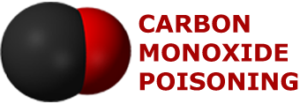About Gordon S. Johnson, Jr.
Attorney Gordon Johnson is one of the nations leading brain injury advocates. He is Past-Chair of the TBILG, a national group of more than 150 brain injury advocates. He has spoken at numerous brain injury seminars and is the author of the most read brain injury web pages on the internet, including http://waiting.com and http://tbilaw.com When Attorney Johnson talks about "recovery", he isn't talking about what a survivor recovers in litigation, but about getting better from a brain injury.
For more information visit http://gordonjohnson.com/
The Brain Injury Law Group
Attorney Gordon Johnson
1530 S. State St, Unit 18A
Chicago, IL 60605
Call us today!
312-767-9383
ADVERTISING MATERIAL
Brought to you by The Brain Injury Law Group, SC. The materials on this web page are provided purely for informational purposes. They are not intended to be legal advice. This information is intended, but not promised or guaranteed, to be correct, complete, and current. While this page is not intended to be a source of advertising, solicitation or legal advice, it could be deemed to be such.
Click here for our full disclaimer.

Do EMT's Get Poisoned by Carbon Monoxide?
How is Carbon Monoxide Created is a Furnace Which Should be Burning Clean?
How can you have Permanent Brain Damage from CO after Oxygen levels return to normal?
How do Lawyers Prove Brain Damage in Someone who Survives Carbon Monoxide?
Can you have a complete recovery from carbon monoxide poisoning?
How do you Prove Someone was Carbon Monoxide Poisoned?
FAQCan dogs smell carbon monoxide? Can humans?
How is it that carbon monoxide migrated from my furnace room into the rest of the house?
Why are Generators such dangerous sources of carbon monoxide?
What are the early signs of carbon monoxide poisoning?